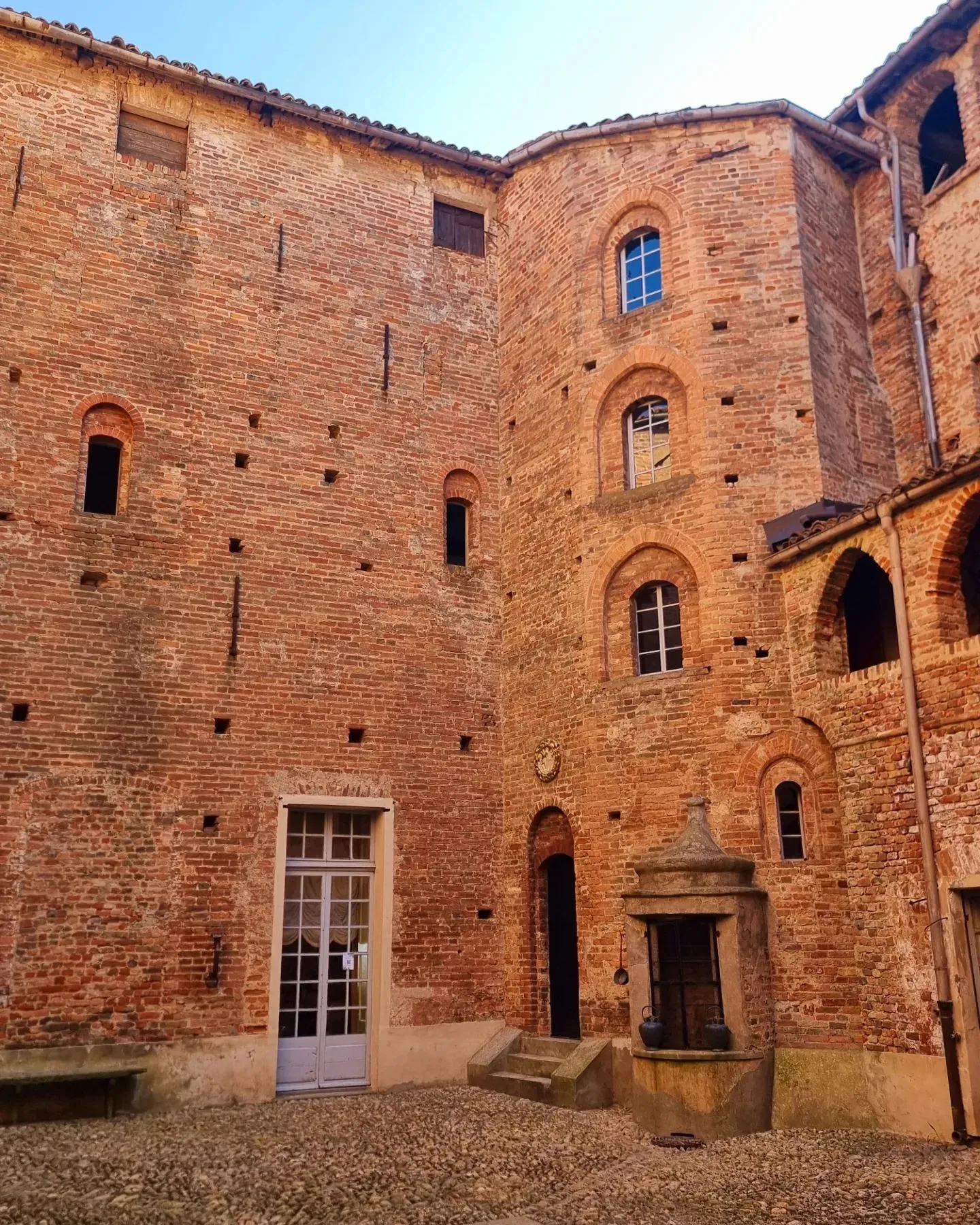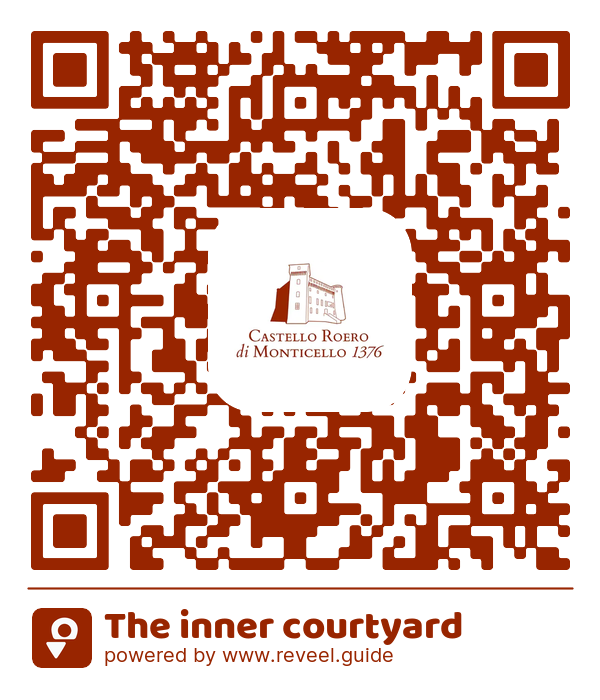
The inner courtyard


The inner courtyard
This courtyard is perhaps the most medieval and original part of the castle. Interestingly, it’s located on the second floor because the moat was removed, effectively raising the entire castle by one floor. Inside the courtyard, there is an octagonal tower that leads to the upper floors and the parapet walk.
As you can see, the courtyard is now paved with cobblestones, but it was a grassy lawn until the 1950s. This is because the courtyard is actually the peak of the hill. There’s also a well here that collected water through the gutter system until the 1950s when the aqueduct was installed.
On a mezzanine level, you'll find a neo-Gothic loggia that was used for musicians during medieval festivals. Look closely at the walls, especially in the corners, and you’ll notice many arches and windows that have been closed off and redone. These reflect the numerous renovations the castle has undergone over the centuries. The courtyard is the best witness to all these architectural changes.
